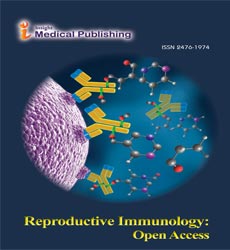Abstract
Which Could Be the Underline Causes Behind Chronic Nosebleed?
Introduction: Nosebleeds that recur often are commonly caused by bleeding from the front of the nose. There are causes for acute (picking the nose, structural problems in the nose, allergies, medications, humidity, etc.) and chronic nosebleed (rupture of the blood vessels, polyp or tumor in the nose or sinuses, health conditions leading to abnormal blood clotting, etc.). In traditional Chinese medicine (TCM) nosebleeds are usually due to Heat retention in the Blood. Purpose: to demonstrate that patients with chronic nosebleed could have energies alterations leading to retention of Heat, as well as it could be caused by deficiency of chakras energies meridians leading to this Heat retention. The treatment of these patients should be individualized and the manifestation of nosebleed could be only the symptom that a systemic energy imbalance should be treat to correct in a deeper level the root of the problem and not just treat the symptoms. Methods: through one case report, A.L., 7-year-old female patient, with a history of chronic nosebleed since 6 years ago. She underwent various consultations with otorhinolaryngologist and pediatrician that suggested her to do local cauterization. Her uncle sought ancient medical tools to treat her and the Chinese physician orientate her to avoid the ingestion of dairy products, cold water, raw foods, sweets and also, fried foods, chocolate, eggs, honey, coconut. For her surprise all these foods were very common in her diet, mainly in the meal that she usually buys in the school, that all foods are made by dairy products, melted cheese and chocolate. She did auricular acupuncture with apex ear bloodletting twice a week. Chakras energies meridians centers were measured through radiesthesia procedure that showed all chakras in the lowest level of energy (rated one out of eight). The replenishment of these chakras were done using highly diluted medications according to Constitutional Homeopathy of the Five Elements Based on Traditional Chinese Medicine. Results: the patient improved
Author(s):
Huang Wei Ling
Abstract | PDF
Share this

Google scholar citation report
Citations : 237
Reproductive Immunology: Open Access received 237 citations as per google scholar report
Abstracted/Indexed in
- Google Scholar
- Sherpa Romeo
- China National Knowledge Infrastructure (CNKI)
- Secret Search Engine Labs
Open Access Journals
- Aquaculture & Veterinary Science
- Chemistry & Chemical Sciences
- Clinical Sciences
- Engineering
- General Science
- Genetics & Molecular Biology
- Health Care & Nursing
- Immunology & Microbiology
- Materials Science
- Mathematics & Physics
- Medical Sciences
- Neurology & Psychiatry
- Oncology & Cancer Science
- Pharmaceutical Sciences

